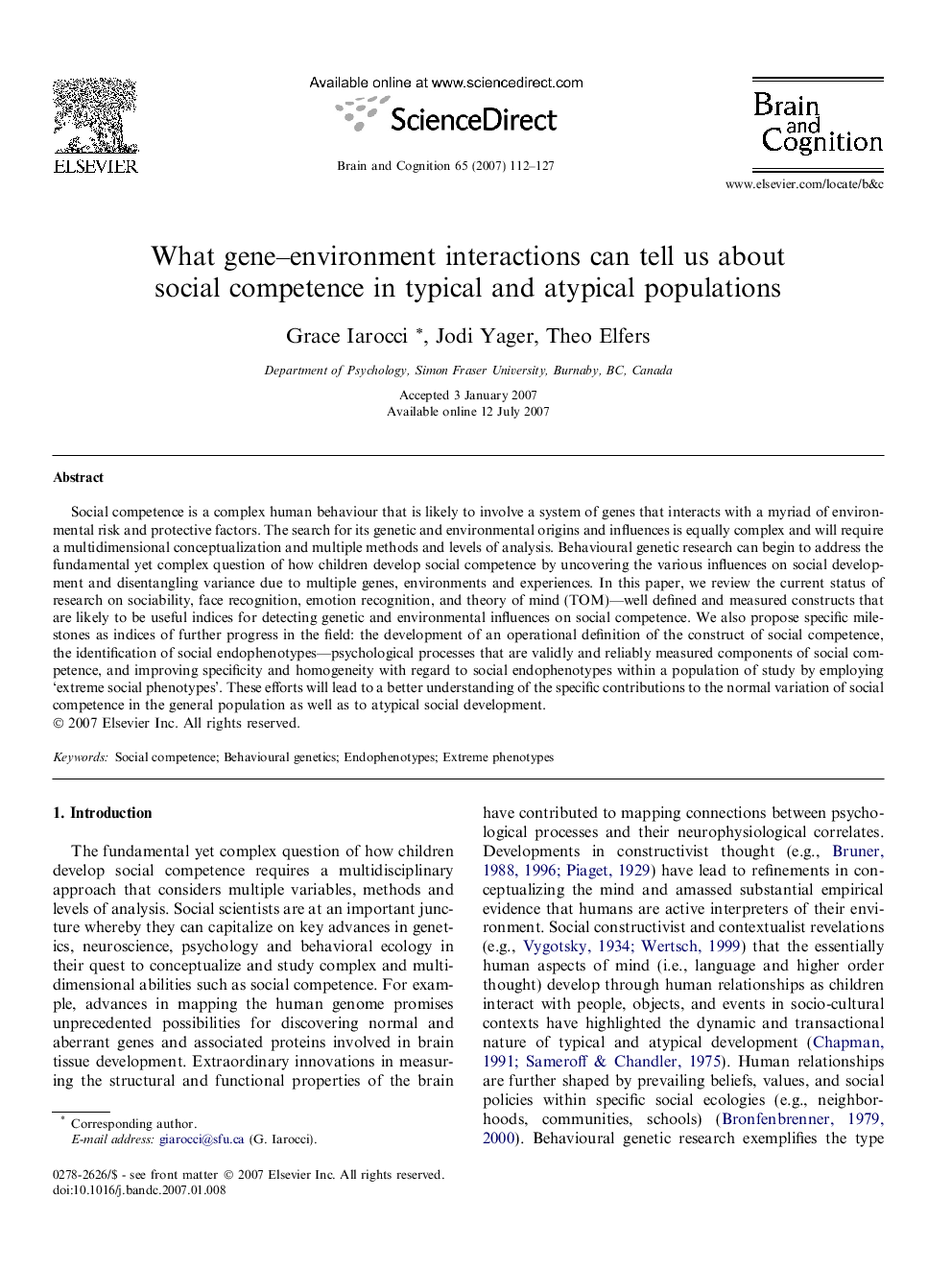| Article ID | Journal | Published Year | Pages | File Type |
|---|---|---|---|---|
| 924806 | Brain and Cognition | 2007 | 16 Pages |
Social competence is a complex human behaviour that is likely to involve a system of genes that interacts with a myriad of environmental risk and protective factors. The search for its genetic and environmental origins and influences is equally complex and will require a multidimensional conceptualization and multiple methods and levels of analysis. Behavioural genetic research can begin to address the fundamental yet complex question of how children develop social competence by uncovering the various influences on social development and disentangling variance due to multiple genes, environments and experiences. In this paper, we review the current status of research on sociability, face recognition, emotion recognition, and theory of mind (TOM)—well defined and measured constructs that are likely to be useful indices for detecting genetic and environmental influences on social competence. We also propose specific milestones as indices of further progress in the field: the development of an operational definition of the construct of social competence, the identification of social endophenotypes—psychological processes that are validly and reliably measured components of social competence, and improving specificity and homogeneity with regard to social endophenotypes within a population of study by employing ‘extreme social phenotypes’. These efforts will lead to a better understanding of the specific contributions to the normal variation of social competence in the general population as well as to atypical social development.
